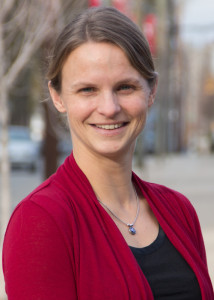Oral
Stormwater (UWRRC)
Sustainable Biochar for Lead Removal from Stormwater
Tuesday, May 20, 2025
3:00 PM - 3:15 PM Alaska Daylight Time (AKDT)
Room: Room 9 & 10

Erica R. McKenzie, Ph.D.
Associate Professor
Temple University, Pennsylvania, United States
Abdullah Al-Amin
Temple University, United States
Author(s)
Co-Author (not attending)(s)
Abstract Submission: Metals in stormwater can present a ecosystem and human health concern. Roadway runoff stormwater can contain elevated lead concentrations including lead which can originate from historic industrial sources, legacy leaded gasoline, or current transportation related sources. This project evaluated the potential for spent coffee grounds to be the feedstock for biochar, and its capacity to remove lead and other metals, considering various environmental factors like salinity, dissolved organic carbon (DOC), and pH. Biochar was produced at three pyrolysis temperatures – 300°C, 500°C, and 700°C – and sorption kinetics and equilibrium capacity were increased at higher temperature. At equilibrium, Pb removal percentage followed the order: BC 700°C (99.2-99.7%) > BC 500°C (91.6 – 97.4%) > BC 300°C (22.9 – 28.1%). Experimental kinetic data best fitted with the Fractional power model, followed by Elovich, Richie, Pseudo-second-order, and Pseudo-first-order models. Biochar created with higher temperatures had greater C/O ratio, indicating enhanced aromaticity and structural stability. Experiments on water quality impacts indicated that Pb sorption was more effective at neutral pH, while higher DOC concentrations reduced Pb removal. The presence of multiple metals enhanced Pb removal, and salt concentration did not significantly affect removal. Both BC 500°C and BC 700°C showed similar responses to these factors, conversely BC 300°C consistently had lower sorption capacity but water quality impacts were different. This study suggests that biochar derived from spent coffee grounds is a viable engineered soil amendment for stormwater management, capable of sequestering a wide range of pollutants, including Pb under different environmental conditions.
Learning Objectives/Expected Outcome (Optional) :
Learning Objectives/Expected Outcome (Optional) :

